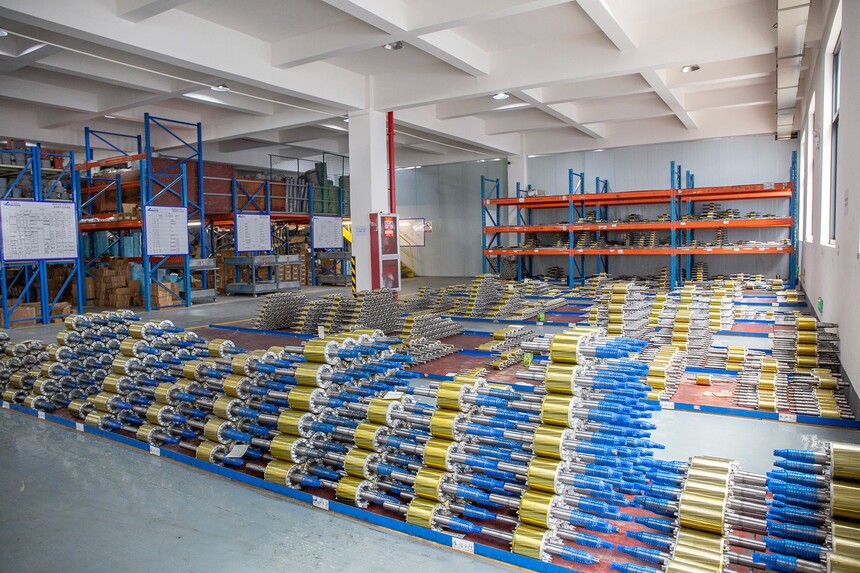News information
|
|
The effect of aluminum motor requires more effort in materials and designThe aluminum motor uses high-quality materials and optimized design to achieve higher efficiency. For example, the higher the aluminum content in the rotor, the higher the slot filling factor in the stator, and the smaller the resistance loss. The optimized rotor structure and rotor stator air gap reduce the loss of stray load. The improved design of the cooling fan allows the motor to cool with less wind resistance loss. The rotor and stator cores use higher quality steel plates, and the steel plate lamination is thinner, which can greatly reduce the magnetization loss. The reduction in friction loss is caused by higher quality bearings. The following diagram shows the anatomy of an AC induction motor, indicating the housing and bearing assembly. The size of the stator laminates and the quality of the steel used Hysteresis loss and eddy current loss are called core loss together. About 20% of the total loss is caused by eddy currents and core saturation. The eddy currents generated by the stack move relative to the changing magnetic field, which will result in significant power losses. Laminated stator cores reduce eddy current losses, which can be minimized by more lamination based on the mass, resistivity, density, thickness, frequency, and flux density of the iron. When the magnetic flux of the magnetic circuit is constantly changing, hysteresis loss will occur. Most of the load materials used in aluminum-shell motors are steel for stator and rotor cores. By reducing the thickness of the lamination, the magnetic flux density and core loss are minimized. The better quality laminated steel can be selected by annealing to change the magnetization of the grain structure and reduce the hysteresis loss. Eddy current losses can be reduced by increasing the resistivity of the silicon-containing steel, but the silicon content increases die wear during stamping because silicon increases the hardness of the steel. Steel crystals that are damaged during stamping can severely reduce the magnetic properties of the affected volume. Annealing flattens the lamination and recrystallizes the damaged crystals during stamping, thereby extending the thickness of the sheet into the lamination. The stator is laminated by immersion method Impregnating the stator enhances the electrical insulation of the stator windings, prevents the effects of chemicals or harsh environments, and improves the heat dissipation effect. Thermosetting plastics including epoxy resin, phenolic resin and polyester are used to impregnate the stators. The soaking method is to immerse the stator in the resin for a long time to ensure better penetration and protection. Another impregnation method, called vacuum pressure, uses a tank that is first emptied and then pressurized to allow the stator to penetrate. Air pockets are extracted from the electrical winding, thereby improving the thermal conductivity of the winding.
The slots in the stator are designed to greatly increase the amount of copper that can be inserted To a certain extent, the gap filling rate will affect the quality of the stator winding, which will lead to 60% of the total loss. Therefore, in order to reduce the total loss, the mass of the stator winding must be large to reduce the resistance. The high-efficiency motor contains more than 20% additional copper compared to a standard efficiency motor, and the stator's insulated winding is located in a slot of the steel plate. The cross-sectional area must be large enough to meet the rated power of the aluminum motor. Generally, induction motors have open or semi-closed stator slots. In a semi-closed groove, the opening of the groove is much smaller than the width of the groove. Compared to open grooves, winding is more difficult and time-consuming to manufacture. The number of stator slots must be selected during the design phase, as it affects weight, cost and operating characteristics. The advantages of multiple slots are reduced leakage reactance, reduced tooth pulsation losses and increased overload capacity. The disadvantages of more stator slots are increased cost, increased weight, increased magnetizing current, increased iron loss, poor cooling, increased temperature rise and reduced efficiency. High quality pure aluminum for rotor die casting The custom rotor can greatly increase the starting torque, reduce conductor resistance and improve efficiency. Most induction motors have a squirrel cage rotor design. They are durable, simple and inexpensive, but they have low starting torque. Copper rotors improve efficiency, but are difficult and expensive to manufacture. Better air gap between rotor and stator The air gap is the radial distance between the rotor and the stator of a standard radial motor. In order to improve the design efficiency, it is necessary to maintain a better air gap. The size of the air gap is related to the design of the stator, rotor, motor housing and bearing. All of this affects the precise alignment of the stator and rotor shafts. Enamelled wire Electromagnetic wire or enamelled wire is electrolytically refined copper or aluminum wire that is fully annealed and coated with one or more insulating layers. For example, use wires with a total of 12 layers of insulation. As the temperature range increases, typical insulating films are polyethylene, polyurethane, polyester and polyimide, with a higher temperature of 250°C. Thicker rectangular or square electromagnetic wires are wrapped with high-temperature polyimide or fiberglass tape, more copper is used, and larger conductor rods and conductors increase the cross-sectional area of the stator and rotor windings. This reduces the resistance of the winding and the loss caused by the current. High-efficiency motors typically have 20% more copper in their stator windings. Summary: Aluminum motor consists of many parts, each of which provides different structural and functional properties, resulting in different functions in the aluminum motor system. The function of each part affects the input performance of the motor. By optimizing the performance of each part of the motor, the performance of the motor can be optimized. |




